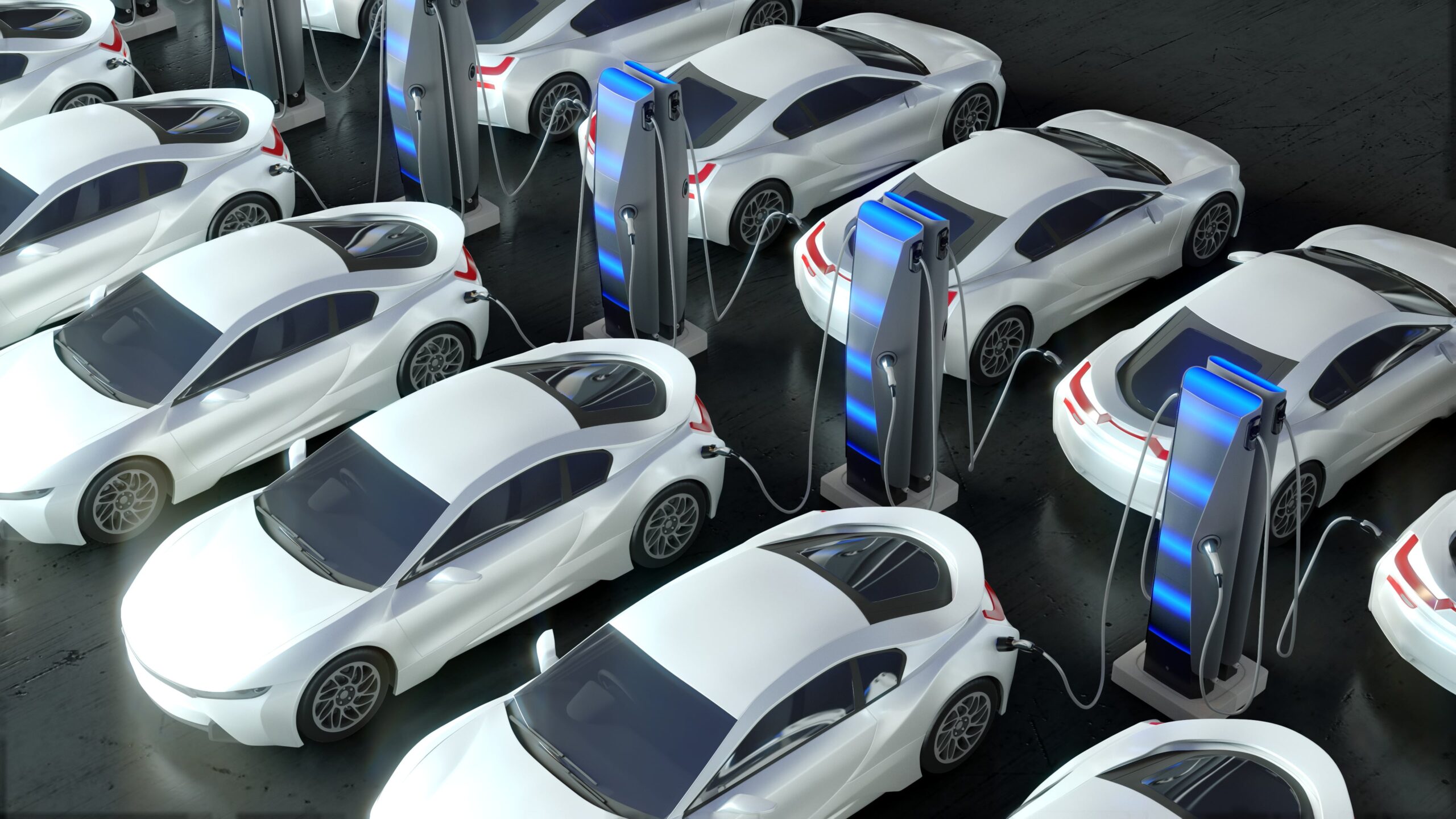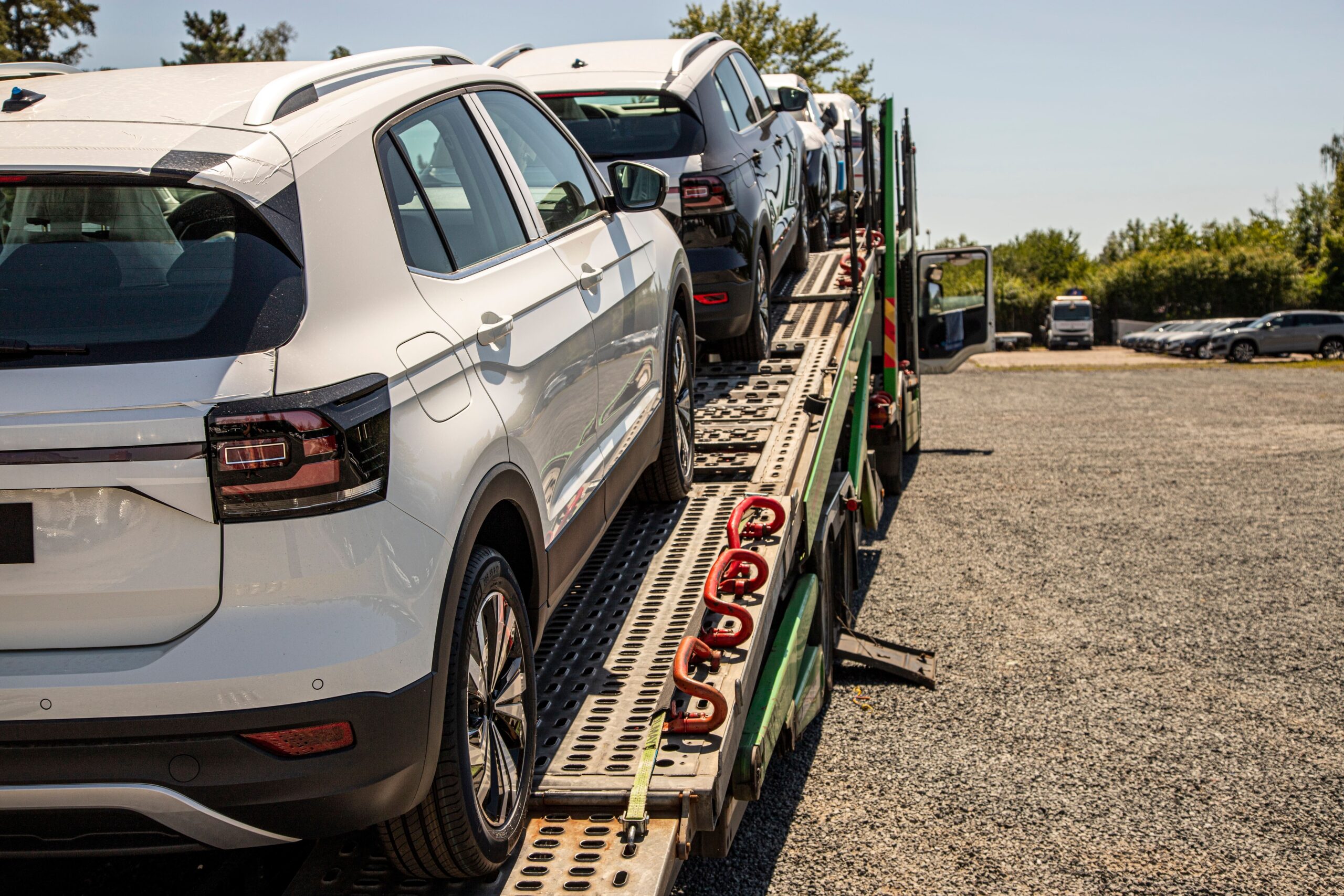Electric vehicles are expected to start dominating the US roads and several industries, particularly logistics, aiming to deliver cargo most efficiently. With the increasing popularity of electric cars, people have many concerns about shifting to a new era of transportation.
Therefore, several interesting topics about the rise and development of EVs and their shipping processes will be covered in this comprehensive guide, as demonstrated in the following:
- The Rise of Electric Vehicles
- Electric Vehicles’ Benefits and Opportunities
- Challenges and Concerns in Manufacturing Electric Cars
- Electric Vs. Traditional Vehicle Shipping
- A Comparison Between Electric Vehicle Shipping in the Past and Present
- A Vision into the Future of Electric Vehicle Shipping
The Rise of Electric Vehicles
Surprisingly, the first real electric car is as old as the early days of the automotive industry, dating back to the 1800s. In the old days, electric vehicles relied on power from disposable batteries, generating electricity from crude oil. These vehicles had a limited range and could travel at 12-kilometer speed per hour.
Several challenges led to the failure of electric vehicle adoption in its early days, mainly because the vehicle’s batteries were less safe and efficient than they are today. Also, fossil fuels were a more affordable and accessible option due to the fuel mining and production boom at that point in time.
This explains why today’s gas stations are far more prevalent and available than charging infrastructure dedicated to electric vehicles. Many other environmental, financial, and security concerns have prevented the development of electric cars and given rise to the gas-powered vehicles we know instead.
However, that was not the end of the story since electric cars have gone through several stages of improvements, proving a more efficient type every time a new upgrade is released.
Today, there is a rising interest in investing in the development of electric cars, with growing concerns about climate change and the contribution of fossil fuel emissions to worsening the situation.
The automotive industry is now witnessing a new phase of car manufacturing. This new era focuses on developing better and more eco-friendly electric cars to replace gas-powered vehicles and hopefully reduce emissions by 50% in the coming years.
Electric Vehicle Benefits and Opportunities
The adoption of electric vehicles promises to transform the traditional transportation infrastructure with its challenges and problems. Electric cars offer many benefits to the environment, businesses, and individuals and have many critical future opportunities, further explored in this section.
The Benefits of Electric Vehicles
It is no secret that the top incentive electric vehicles yield to consumers and our planet is their efficiency, relying completely on electric energy and producing zero emissions to the atmosphere. Other important benefits of adopting electric vehicles include:
- Electric vehicles don’t need motor oil, which minimizes the need for performing regular maintenance operations and maximizes their ownership cost-efficiency in the long run.
- Electric vehicles are developing longer ranges, which optimizes their efficiency for longer trips and increases their lifetime.
- Electric vehicles successfully respond to the world’s environmental challenges at the present time, primarily CO2 emissions, hiking fuel prices, sustainability, and air quality.
- The cost to operate and charge electric vehicles is lower than that of fuel-powered cars, contributing to significant savings on energy expenses.
- Electric vehicles enjoy a high-quality performance that enhances individuals’ driving experience and convenience. Their unique design and features also make them incredibly efficient in energy consumption.
Future Opportunities of Electric Vehicles
The future holds many promising opportunities for electric vehicles as technology develops and produces more effective innovations. For example, the global EV market is expected to grow significantly in the coming years as governments persistently call for integrating these vehicles into the transportation system.
Also, governments and manufacturers have plans to expand EV charging infrastructure that will encourage more people to shift to using this more sustainable form of transportation and help introduce EVs to a larger customer base.
Challenges and Concerns in Manufacturing Electric Vehicles
Despite EVs’ great potential and significant benefits, manufacturers still face major concerns and challenges in developing these vehicles and launching them to the market.
The most common challenges and concerns of EV manufacturing are the high cost of production, infrastructure limitations, skeptical customers, and the scarcity of specific parts needed to manufacture these cars.
The latter challenge is the main reason that makes producing EVs relatively costly, passing these costs on to customers and leading a considerable portion to refrain from purchasing their own EVs. Regarding infrastructure limitations, charging stations for electric vehicles are still less common, though there are plans to expand them in the near future.
Finally, the perception and acceptance of EVs among individuals is another challenging factor since many people still view them as less safe, especially regarding their batteries. There are also challenges related to the batteries’ being affected by changes in temperature, especially during freezing weather, that can affect the vehicles’ operability.
Electric Vs. Traditional Car Shipping
How to ship a car of the electric type is, in fact, very similar to shipping other traditional cars in its essence. However, some specifications of electric vehicles create a little difference between the two shipping processes, requiring additional safety practices.
First, electric cars are a more expensive vehicle type. They are sensitive to external elements, requiring car shippers to design a special handling and transportation method to maintain their distinctive look.
Electric vehicle batteries also create some challenges for shipping, posing risks of burning or explosion during transport if not appropriately handled and stored in isolation.
Moreover, car shipping companies must possess special equipment and professional staff for transporting EVs safely and efficiently, capable of supporting extra weight. The additional considerations that come with EV shipping and their heavy weight make shipping this vehicle type more expensive than traditional ones.
Last but not least, the limited charging infrastructure adds to the complexities of EV shipping, considering the need to monitor EVs’ battery power and regularly charge them.
Shipping Electric Vehicles in the Past Vs. at Present
EV shipping processes have undergone several changes and stages, just like manufacturing these cars. Shipping electric vehicles in the past was far less common and more complicated than now, with only a few companies offering this service.
A number of factors made EV shipping in the past challenging. The limited availability of EVs, the special considerations for EV batteries, and the lack of infrastructure are among the top reasons, as further explained in these lines:
- The scarcity of EV models in the early days of EV manufacturing made shipping them more expensive than other cars. This is because electric cars required unique shipping vessels, which were also costly to invest in, the same way offering the service altogether was for many car shipping companies.
- Shipping EVs in the past required setting a high budget because of the unique packaging needed to secure batteries, in addition to their heavy weight that required carriers to have weight capacity sufficient to carry them.
- Because EVs were less common in the past, charging infrastructure was also hard to find, especially in rural areas. It was considerably challenging for car shippers to keep EVs charged during transport because of the lack of charging facilities along major shipping routes.
Shipping EVs in the past was a time- and effort-consuming process that was done on a one-off basis using standard shipping vessels and containers. Furthermore, standard shipping vessels exposed electric vehicles to serious damage and compromised their safety.
The Current State of EV Shipping
Nowadays, shipping electric vehicles is more secure and efficient than in the old times. This is primarily due to the great developments and advancements in the EV manufacturing industry, leading car shippers to develop their shipping methods in return.
The same factors that have previously posed challenges for EV shipping have contributed to increasing their shipping efficiency recently.
Electric vehicles have gained popularity and manufacturers will produce them in larger quantities in the coming years. This has led car shippers to proactively respond to this new trend in the automotive industry by providing more innovative shipping solutions that have maximized safety and efficiency.
Car shippers started to develop dedicated EV shipping vessels and containers that could haul large numbers of electric cars, making EV shipping faster and more affordable. Specialized EV shipping containers provide extra safety features, like fire suppression systems, temperature monitoring systems, shock absorption systems, and even charging infrastructure.
Most importantly, charging stations are gradually becoming more available and accessible for individuals and shipping companies to keep EVs charged adequately, especially in urban and major routes.
These major advancements in EV shipping have encouraged many businesses and individuals to ship their electric cars with a professional car shipper without hassle.
A Vision into the Future of EV Shipping
The electric vehicle sector has a promising future, as many leading car manufacturing companies are putting a lot of money, effort, and focus into developing EVs with more advanced and competitive features.
The growth of the EV market will directly affect the car shipping industry, which is expected to develop new effective shipping methods that cater to the emerging EV shipping requirements and trends.
For example, intelligent EV shipping solutions will be developed to help track and manage EV shipments more reliably. These smart innovations could include updated GPS tracking systems and data analytics tools that give real-time information on EV shipments’ location and status.
As technological advancements continue to evolve and offer new innovative trends, shipping electric vehicles in the future will undoubtedly be more efficient, affordable, and credible.
Tempus Logix is a professional, top-rated car shipping company operating nationwide. The company ships all vehicle types and broadly invests in technology and smart systems that simplify car shipping processes and optimize cost and time efficiency. It also has a major concern about eco-friendly shipping practices, so it always supports the safest shipping methods for customers and the environment as well.
In Conclusion
Though electric vehicles have existed for a very long time, even before fuel-powered cars, they only started to generate the interest of manufacturers, individuals, and governments.
Launching electric vehicles to the market will solve many challenging issues related to transportation and the environment. Besides enjoying other appealing incentives in speed, performance, and design, these cars are designed to be more environmentally friendly.
Most importantly, shipping electric vehicles has significantly changed over the years, with companies investing in more effective and advanced technologies that have considerably enhanced EV shipping and made it more reliable, effective, and affordable.






